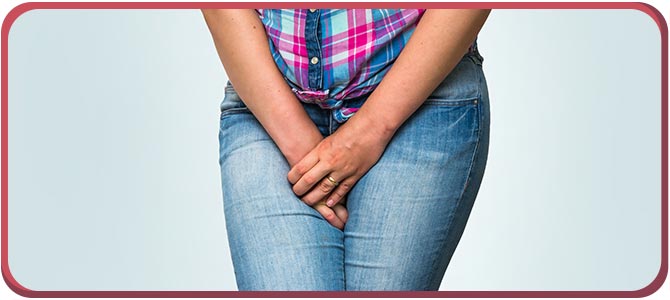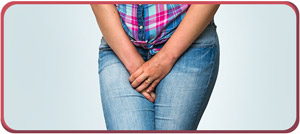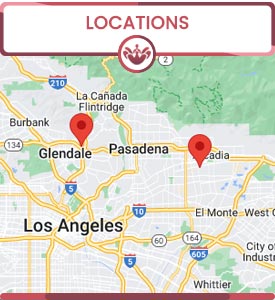Urinary Incontinence Treatment Q&A
Urinary incontinence is a condition characterized by the involuntary loss of urine, and it can manifest in various ways. If you are dealing with urinary incontinence and looking for a treatment that works, contact Dr. Prema Kothandaraman at our clinic to book an appointment. For more information contact us today or visit us. We have convenient locations to serve you in Arcadia, and Glendale, CA.




Table of Contents:
What is urinary incontinence?
What causes urinary incontinence?
What are the types of urinary incontinence?
What are my treatment options for urinary incontinence?
Urinary incontinence is known as the loss of bladder control, it is often quite common but can be embarrassing for the individual dealing with it. The severity of urinary incontinence can range from occasionally leaking when you cough or sneeze to having the urge to urinate that is so sudden and strong you cannot make it to the toilet on time.
Urinary incontinence often occurs in older individuals, as it becomes an inevitable consequence of aging.
Urinary incontinence can be caused by things including everyday habits, underlying medical conditions or physical problems. Although a thorough evaluation by one of our doctors can help determine what is the cause of your incontinence.
• Temporary incontinence
Temporary incontinence can include certain drinks, foods and medications which can act as stimulant to empty your bladder and increase the volume of urine that is not normal. A few of these items include:
• Alcohol
• Caffeine
• Carbonated drinks
• Sparkling water
• Artificial sweeteners
• Chocolate
• Chili peppers
• Spicy, sugary, or citrus/acid foods
• Heart and blood medications
• Sedatives and muscle relaxants
• Large quantities of vitamin C
• Persistent urinary incontinence
Persistent urinary incontinence can be caused from underlying physical issues or changes, including:
• Pregnancy
• Childbirth
• Changes with age
• Menopause
• Enlarged prostate
• Prostate cancer
• Obstruction
• Neurological disorders
The symptoms of urinary incontinence will depend on the type of urinary incontinence you are diagnosed with. Many deal with occasional minor leaks of urine, while others deal with more severe amounts.
Types of urinary incontinence that you could be diagnosed with include:
• Stress incontinence
Stress incontinence is when urine leaks as you exert pressure on your bladder by either coughing, sneezing, laughing, exercising, or lifting something heavy.
• Urge incontinence
Urge incontinence is when you feel a sudden need that is intense to urinate followed by an involuntary loss of urine. You may need to urinate more often, including throughout the night.
• Overflow incontinence
Overflow incontinence is when you experience frequent or constant dribbling of urine due to a bladder that cannot or does not completely empty.
• Functional incontinence
Functional incontinence is a physical or mental impairment that keeps you from making it to the toilet on time.
• Mixed incontinence
Individuals dealing with mixed incontinence may experience more than one type of urinary incontinence at a time, most often this refers to a combination of stress and urges incontinence.
Treatment options largely depend on the type of incontinence you are diagnosed with, from the severity to the underlying cause. You may require a combination of treatments to help. If you have an underlying condition that is causing your urinary incontinence symptoms, your doctor will treat the condition first.
Behavioural techniques your doctor may recommend:
• Bladder training
• Double voiding
• Scheduled toilet trips
• Fluid and diet management
Pelvic floor exercises are a fantastic way to strengthen the muscles that help to control your urination. These techniques are especially useful for stress incontinence.
Medications are often prescribed to help treat urinary incontinence. There are many different kinds of medications available, each offering to help different types of urinary incontinence.
Electrical stimulation helps by temporarily stimulating and strengthening the pelvic floor muscles.
Medical devices like the urethral insert and the pessary were created to help women with urinary incontinence.
Surgery may be an option if the above listed treatments fail to help. This is often the last resort of treatment options for urinary incontinence. If you are dealing with urinary incontinence, do not hesitate to reach out to our clinic to speak to one of our doctors today. For most individuals, a simple lifestyle change and dietary changes or even medical care can often treat the symptoms of urinary incontinence. Do not suffer in silence, reach out to us to get treatment today!
Interested in our services? Contact us today! For more information call us today or book an appointment online. We have convenient locations to serve you. We serve patients from Arcadia CA, Glendale CA, Monrovia CA, Pasadena CA, Los Angeles CA, Burbank CA, and surrounding areas.


Additional Services You May Need
▸ Urogynecology
▸ Minimally Invasive Gynecology
▸ Monalisa & Medical Aesthetics
▸ Bioidentical Hormone Replacement Therapy
▸ Urinary Incontinence
▸ Pelvic Organ Prolapse
▸ Painful Bladder
▸ Urinary Tract Infection
▸ Genitourinary Syndrome of Menopause
▸ Female Sexual Dysfunction
▸ Urinary Retention
▸ Vaginal Laxity & Prolapse
▸ Postpartum Pelvic Floor Problems
▸ PCOD
▸ Bladder Prolapse Repair
▸ Urgent PC
▸ Fibroids
▸ Excessive Bleeding
▸ Pelvic Pain
▸ Birth Control & IUD
▸ Vaginal & Pelvic Infection
▸ Monalisa Touch
▸ STD
▸ TempsureVitalia
▸ Biote Pellet Therapy
▸ Topical BHRT
▸ Flexsure
▸ Rectal Prolapse Repair
▸ Tempsure ENVI
▸ Minimally Invasive Pelvic Surgery for Incontinence



